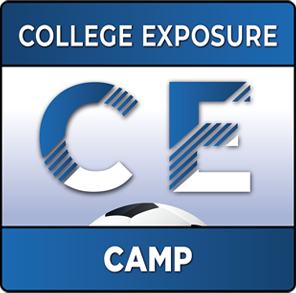In 2018, NCAA Division I changed a few recruiting rules in 2018. This will cover just the soccer aspect of the changes. There are different recruiting rules for basketball and football. Keep in mind, this is just a Division I change, not all NCAA.
Official Visits
Official visits can start Sept. 1 of an athlete’s junior year of high school. Previously, student-athletes couldn’t take their five official visits until the first day of classes of their senior year.
This new D-I recruiting rule will allow athletes to use their five official visits over an extended period. The hope is by doing this athletes’ will make more mature decisions.
Ultimately, now all D-I prospects can start taking official visits to D-I colleges and universities during their junior year.
Unofficial Visits
“How does the previous rule eliminate early recruiting?” It’s because the NCAA added additional rules that effect unofficial visits and recruiting conversations.
Athletic departments, which includes coaches and support staff, aren’t able to participate in recruits unofficial visit until Sept. 1 of their junior year in high school.
The NCAA hopes this new rule will give D-I prospects the time to make more well-informed decisions.
Athletes could take unofficial visits at any time and meet with the college’s coaching staff and the athletics department. With these new rules that won’t happen anymore. Athletes can still go on unofficial visits to see college campuses, but they won’t be able to meet with coaches or the athletics department until Sept. 1 of their junior year.
Recruiting Conversations at Sports Camps or Clinics
This is a big change. College coaches can’t hold recruiting conversations with student-athletes during an institutional camp, ID Camp or showcase. Coaches can still work at these camps and evaluate athletes, they just can’t have discussions about recruiting with athletes until Sept. 1 of their junior year.
Recruiting conversations include any contact between a prospective student-athlete and a coach where they discuss the athlete’s recruiting journey, performance, or the coach’s interest in that athlete.
Additionally, college coaches can’t send or return any emails, direct messages, texts, phone calls or letters that have to do with the athlete’s recruiting process.
College coaches can’t use coaches or scouts as to pass on messages. However, they can use them to show or express interest.
For example, when a college coach calls your club coach asking about an athlete, they can tell your coach: “Hey, we are interested in Mike Soots.” They can not say: “Hey, tell Mike Soots that we are interested in him.”
What does this mean?
It is a good thing. NCAA tries very hard to protect you as a prospective student athlete.
These new D-I recruiting rules will make every athlete’s recruiting experience way more enjoyable. They are really trying to give you time to make a good choice and not feel rushed to make a decision as a freshman.
Keep in mind though, just because recruiting conversations have been pushed back it does not mean wait until September 1st to start your process.

